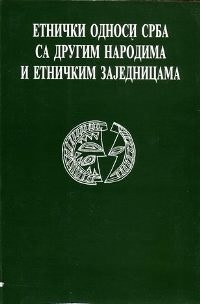Односи Србије и Велике Британије 1878-1886. Према извештајима посланика из Београда и Лондона
Relations Between Serbia аnd Great Britain 1878 - 1886. According to reports of deputies from Belgrade and London
Author(s): Aleksandar P. Rastović
Subject(s): Diplomatic history, International relations/trade, 19th Century
Published by: Етнографски институт САНУ
Summary/Abstract: Relations between Serbia and Great Britain in the period between 1878 and 1886 depended on Serbian reverence of the initial principle of the British foreign policy concerning the Balkans. That principle meant necessity of maintaining of set of relations and territorial sharing stated at the Congress in Berlin. That practically meant to unable Russian return to the Balkans by all means, which was the greatest British rival at that time. Russian influence would be active and crucial in solving the eastern issue. According to this, Great Britain formed its attitude towards Serbia. Serbia would have been important for Great Britain only if it had framed Britain's system of relations in the Balkans, i.e. if it had revered Berlin's agreement or threatened its existence. Prejudices, which had been formed earlier in the British public opinion and official policy towards Serbia as a tool in Russian hands, were kept in this period, as well. Even the smallest attempt or form of co operation between the Serbs and the Russians were reported to the government by British deputies. The British government estimated this as a sort of a tiny riot of Pan Slavs in Serbia, and considered it to have been threatening for British influence on the Balkans.
British policy did not interfere with political life in Serbia. Only if British interests were endangered, did it interfere and that happened mostly by strengthening those circles in Serbia which were adorers of Russia
Political contacts and relations were rare, whereas those concerning economics more developed and more frequent. That confirms the thesis that Britain was more interested in Serbia in the field of economics than politics. Long relations have been existing and some are starting. The Serbs do not know much about Great Britain, its culture and history. Not many educated people from Serbia spoke English or gained education in Great Britain. The youth of Serbia went to Switzerland, Russia, Germany and France to be educated. In that time, the only people who knew a lot about Great Britain, spoke English and tried hard to make close relations between two countries were ^edomilj Mijatovi} and a publicist Nikola Jovanovi} Amerikanac. The similar situation was in Great
Britain. Serbia was for English people unknown and far away country. There were many prejudices about the Serbs and their country. So it is not astonishing that public opinion in Britain at that time was that the Serbs were savage and primitive people. Eventhough personalities such as Gledstone, Mayson, Miss Pauline Irbi and Arthur Evans were not rare. There were more and more respected people who made efforts to enabling two countries and their people to get to know each other better. They also gave their best for making powerful political, economical and cultural relations.
After the Congress in Berlin, a new page was opened concerning relations between Serbia and Great Britain. That marked more intensive co operation between the two countries, between Serbian and English people.
Book: Етнички односи Срба са другим народима и етничким заједницама
- Page Range: 231-263
- Page Count: 33
- Publication Year: 1998
- Language: Serbian
- Content File-PDF

